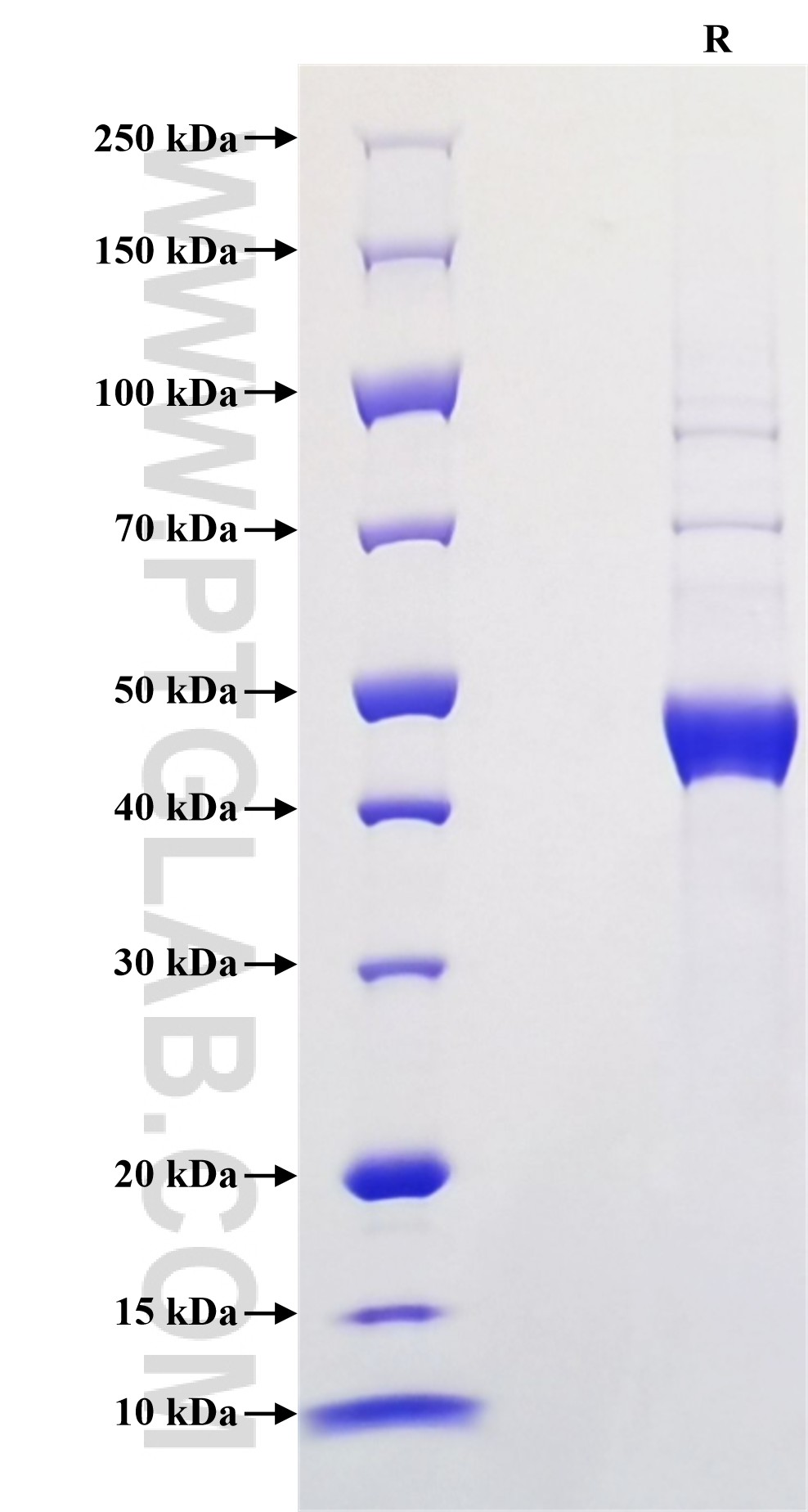Recombinant Human IL-15 protein (rFc Tag)
种属
Human
纯度
>90 %, SDS-PAGE
标签
rFc Tag
生物活性
未测试
验证数据展示
产品信息
| 纯度 | >90 %, SDS-PAGE |
| 内毒素 | <0.1 EU/μg protein, LAL method |
| 生物活性 |
Not tested |
| 来源 | HEK293-derived Human IL-15 protein Asn49-Ser162 (Accession# P40933-1) with a rabbit IgG Fc tag at the C-terminus. |
| 基因ID | 3600 |
| 蛋白编号 | P40933-1 |
| 预测分子量 | 39.1 kDa |
| SDS-PAGE | 42-50 kDa, reducing (R) conditions |
| 组分 | Lyophilized from 0.22 μm filtered solution in PBS, pH 7.4. Normally 5% trehalose and 5% mannitol are added as protectants before lyophilization. |
| 复溶 | Briefly centrifuge the tube before opening. Reconstitute at 0.1-0.5 mg/mL in sterile water. |
| 储存条件 |
It is recommended that the protein be aliquoted for optimal storage. Avoid repeated freeze-thaw cycles.
|
| 运输条件 | The product is shipped at ambient temperature. Upon receipt, store it immediately at the recommended temperature. |
背景信息
Interleukin 15 (IL15) is a cytokine important for the development, maturation, and function of many cells of the immune system including NK, NKT, gammadeltaT, and CD8(+) T cells. Its expression affects homeostasis and function of B cells through NK cell-derived IFNG. IL-15 binds a trimeric IL-15 receptor (IL-15R) complex formed by a specific receptor chain (IL-15Rα) combined with theβandγchains of the IL-2R, acting as signal transducing components. High levels of IL15 expression have been associated with the pathogenesis of autoimmune and inflammatory diseases like Crohn's disease, psoriasis, leukemias, rheumatoid arthritis (RA) and graft rejection, resulting in the IL15 system being a target of interest for the treatment of these diseases.
参考文献:
1. Gill, Navkiran et al. Cellular immunology vol. 258,1 (2009): 59-64. 2. Kirman, I, and O H Nielsen. The American journal of gastroenterology vol. 91,9 (1996): 1789-94. 3. Rückert, R et al. Journal of immunology (Baltimore, Md. : 1950) vol. 165,4 (2000): 2240-50. 4. Yamada, Y, and S Kamihira. Leukemia & lymphoma vol. 35,1-2 (1999): 37-45. 5. Pavlakis, M et al. Transplantation vol. 62,4 (1996): 543-5. 6. Manfro, R C et al. Transplantation proceedings vol. 29,1-2 (1997): 1077-8.


